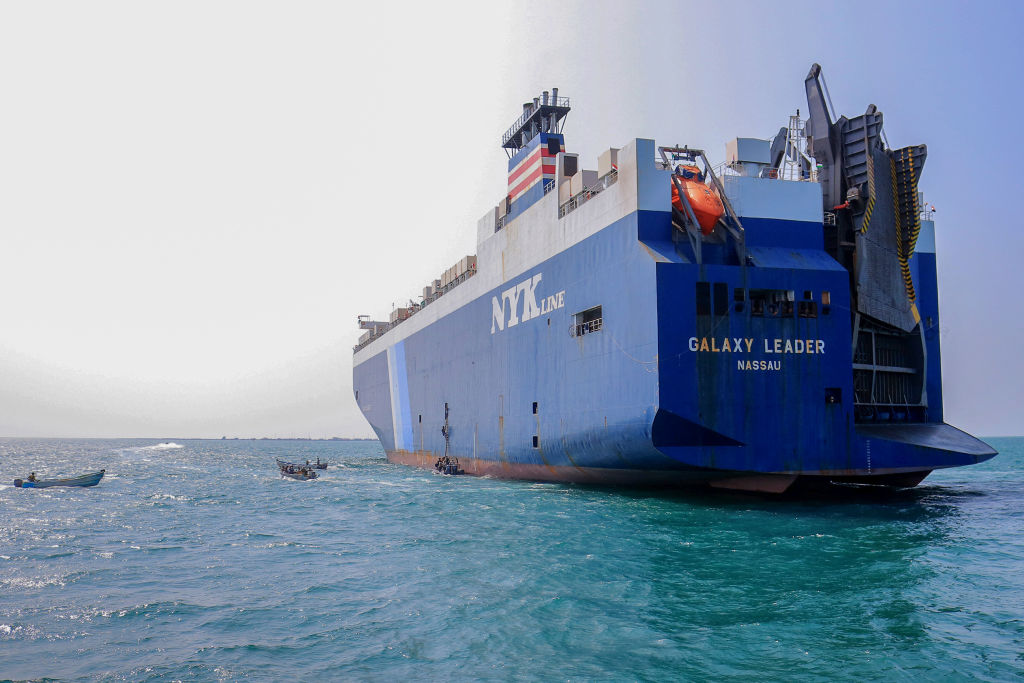Djibouti’s position at the southern end of the Red Sea’s Bab al-Mandeb Strait has made it vital to international and regional counterterrorism efforts aimed at disrupting al-Shabaab in Somalia and Houthi rebels in Yemen.
Djibouti is an island of stability and calm in a region marked by instability. It is also the home of the Djibouti Code of Conduct, adopted in 2009 to support regional and national capacity to counter the threat of piracy and armed robbery against ships in the Western Indian Ocean and the Gulf of Aden.
With the recent attacks by Houthi rebels on transiting Red Sea merchant vessels and linkages to increased al-Shabaab terrorist attacks, security experts believe Djibouti role in the Red Sea region is more important than ever.
“Djibouti has successfully positioned itself as an indispensable asset in the region,” wrote analysts with Bloomberg in a recent newsletter.
Despite its history of order and stability, Djiboutians are not immune from the violence just outside their borders.
In 2014, al-Shabaab attacked a restaurant in the capital, killing a Turkish Soldier and wounding 11 other people. Al-Shabaab claimed the attack was in response to Djibouti hosting multiple international military bases on its territory.
Last year, the terrorist group conducted a suicide car bombing against the military base from which Djiboutian troops served as part the African Union Transition Mission in Somalia (ATMIS) in Somalia’s central Hiran region.
Djiboutian troops remain a key component of the African Union Support and Stabilization Mission in Somalia (AUSSOM), the latest international peacekeeping mission there. Djibouti is contributing 1,520 of nearly 12,000 African security personnel dedicated to that mission.
Djibouti also plays a key role in the region’s counterterrorism efforts as the host of the Intergovernmental Authority on Development (IGAD). IGAD’s Center of Excellence for Preventing and Countering Violent Extremism (ICEPCVE) provides training and resources to help nations counter terrorism throughout the region.
Djibouti’s experience fighting al-Shabaab in Somalia could come into play as the Somali terrorist group makes connections with the Houthis, also known as Ansar Allah, a short boat ride across the Bab-al-Mandeb in Yemen.
“The arms trade in the Red Sea has been a leading factor in Ansar Allah’s ties with Somalia,” analysts Ibrahim Jalal and Adnan al-Jabarni wrote recently for the Carnegie Endowment for International Peace.
In 2020, the Global Initiative Against Transnational Organized Crime reported that Iranian-supplied weapons to the Houthis turned up in the hands of al-Shabaab fighters in Somalia. Iran is reportedly seeking to develop closer ties with the al-Shabaab terrorist group in Somalia.
In response to attacks in the Red Sea, Djibouti has become a key point for commercial ships to transfer their cargo to smaller vessels, a process known as transshipment. In some cases, those smaller vessels fly the flags of countries Houthis have not targeted for attacks. In other cases, the smaller vessels simply become smaller targets that are harder for the Houthis to hit.
Despite its small size and history of neutrality on international and regional conflicts, Djibouti plays an outsized role in ensuring the maritime security of the Red Sea.

